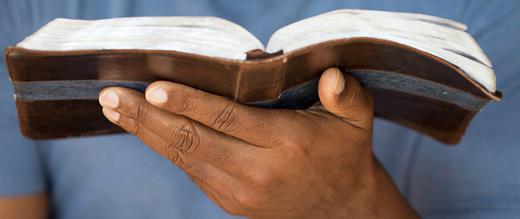The views expressed in our content reflect individual perspectives and do not represent the authoritative views of the Baha'i Faith.
There is one God; mankind is one; the foundations of religion are one. Let us worship Him, and give praise for all His great Prophets and Messengers who have manifested His brightness and glory. – Abdu’l-Baha, from a talk given at London’s City Temple on September 10, 1911, Abdu’l-Baha in London, p. 19.

City Temple
If you walk along an old street in central London called Holborn Viaduct, you’ll eventually come to London’s stately, ornate City Temple, one of the grandest and most venerated churches in all Christendom. Originally built in 1874, its congregation dates back to the days of the Protestant Reformation among the Puritans in the sixteenth century. Not too far from the Museum of London and just a few blocks from the river Thames, The City Temple is hard to miss, with its towering spire and its imposing formal architecture.
If you go inside the City Temple and ask nicely, you may get a chance to see the Old Bible, owned by the church and its congregation since the very beginning. When you look inside the front cover of that Bible, you’ll see an inscription in Persian, written there by Abdu’l-Baha on September 10, 1911. On that day, Abdu’l-Baha, newly released from forty years of prison and exile and recently arrived in London, spoke in public to a large Western audience for the very first time, from the pulpit of London’s City Temple. Abdu’l-Baha’s inscription in the City Temple’s Old Bible says:
This book is the Holy Book of God, of celestial Inspiration. It is the Bible of Salvation, the Noble Gospel. It is the mystery of the Kingdom and its light. It is the Divine Bounty, the sign of the guidance of God. – Abdu’l-Baha, Abdu’l-Baha in London, p. 17.
Baha’is see the sacred scriptures of all Faiths this way—as celestial inspiration, as the mystery and light of the Kingdom, as “the sign of the guidance of God.”
That’s why the Baha’i teachings recommend reading the sacred scriptures every day:
Immerse yourselves in the ocean of My words, that ye may unravel its secrets, and discover all the pearls of wisdom that lie hid in its depths. – Baha’u’llah, Gleanings from the Writings of Baha’u’llah, p. 136.
Recite ye the verses of God every morning and evening. – Baha’u’llah, The Most Holy Book, p. 73.
Intone, O My servant, the verses of God that have been received by thee, as intoned by them who have drawn nigh unto Him, that the sweetness of thy melody may kindle thine own soul, and attract the hearts of all men. Whoso reciteth, in the privacy of his chamber, the verses revealed by God, the scattering angels of the Almighty shall scatter abroad the fragrance of the words uttered by his mouth, and shall cause the heart of every righteous man to throb. Though he may, at first, remain unaware of its effect, yet the virtue of the grace vouchsafed unto him must needs sooner or later exercise its influence upon his soul. – Baha’u’llah, Gleanings from the Writings of Baha’u’llah, p. 295.
If you’d like to read the sacred scriptures of the world’s great Faiths, here’s a brief list to start with:
The Hindu sacred scriptures: among others, read the Upanishads, the Vedas and the Bhagavad Gita (which means the Song of God). The Upanishads, often called Vedanta, reveal the main philosophical concepts of Hindu belief, while the four Vedas—the Rigveda, the Yajurveda, the Samaveda and the Atharveda—come from ancient sages. The Bhagavad Gita, commonly known as the Gita, actually makes up part of an ancient epic poem called The Mahabharata. The Gita presents an extended 700-verse conversation on a battlefield between Prince Arjuna and his spiritual guide Krishna—referred to in the Gita as Bhagavan (the Divine One), and generally thought of as the main prophet of Hinduism.
The Jewish sacred scriptures: The Tanakh, or the Hebrew Bible (what Christians call the Old Testament), is the central holy book. It consists of the Torah (which means Teachings), comprised of the first five books of Moses (Genesis, Exodus, Leviticus, Numbers and Deuteronomy); the Nevi’im (which means Prophets), the chapters in the Hebrew Bible that begin with the Book of Joshua; and the Ketuvim (which means Writings), the chapters that begin with the Book of Psalms. The 45 chapters or books of the Hebrew Bible or the Tanakh describe the history, the spiritual teachings and laws of the Jewish people before the time of Christ.
The Zoroastrian sacred scriptures: the Middle Eastern and Persian religion of the prophet Zoroaster has several primary holy books, usually collected under the name Zend-Avesta, which includes the Yasna and the Gathas.
The Buddhist sacred scriptures: the oldest and best-known Buddhist holy book comes from the Pali Canon of the Theravada school of Buddhism, and is called the Tipitaka, which means Three Baskets: the Vinaya (Discipline Basket), dealing with rules for Buddhist monks and nuns; the Sutta (Sutra/Sayings Basket) made up of various discourses, mostly ascribed to the Buddha, but some to disciples; and the Abhidhamma, (metaphysical and philosophical summaries and lists). In Tibetan Buddhism, the 108-volume Kangyur represents the reported direct sayings of the Buddha.
The Christian sacred scriptures: the Old Testament or Hebrew Bible of Judaism and the New Testament of Christianity combine to produce the Christian Bible. The New Testament has 27 books or chapters, and tells the story of the life of Christ, as well as the teachings of the Church and Christ’s Apostles. Although you can find Jesus Christ’s direct teachings throughout the New Testament, the four chapters called “Gospels”—Matthew, Mark, Luke, and John—recount his life and martyrdom.
The Islamic sacred scriptures: The Qur’an (which literally means the Recitation) consists of 114 chapters, called suras. Muslims believe that the Qur’an, revealed by God (Allah) to Muhammad over a 23-year period and then compiled after his death in 632 AD, represents the Supreme Being’s moral guidance for humanity. Islam accepts the validity of the previous Abrahamic holy books (the Old and New Testaments), just as several newer Faiths accept the teachings of the older ones.
The Baha’i sacred scriptures: The Baha’i Faith has many sacred scriptures, revealed and written personally by Baha’u’llah, the Bab and Abdu’l-Baha. They range from mystical books like The Hidden Words and the Seven Valleys; to books on philosophy and religion like the Book of Certitude; to books of laws and ordinances, primarily The Most Holy Book; to numerous letters, tablets, and even mystical poetry. Baha’u’llah wrote more than 100 volumes—which makes the Baha’i Faith the only major world religion with sacred scriptures written directly by its founder.
These books of celestial inspiration—actually all chapters in the same book—will expand your mind, your heart and your soul.
Next: Four Guidelines for Reading the Sacred Books of All Faiths

















Comments
Sign in or create an account
Continue with Facebookor